Founded in 2002, the Harvard Chan Africa Health Students Forum (AHF) is a student-led organization dedicated to furthering the debate and pushing the dominant discourse around public health issues facing Africa. AHF is open to all African and non-African members of the Harvard community, representing diverse backgrounds and interests, and promotes inclusion and innovative thinking to inspire students to make a positive impact on the continent through the provision of healthcare services. Over the years, the organization has curated a variety of initiatives, including the African Women Leaders in Health (AWL) and the Africa Health Conference.
The Africa Health Conference (AHC) is a renowned annual event that brings together leading experts, researchers, practitioners, and students from around the world to discuss and explore pressing health challenges in Africa. The conference aims to foster interdisciplinary collaboration, knowledge sharing, and innovative solutions to address the complex health issues facing the African continent. The conference is an opportunity to develop and sustain a community of public health scholars, frontline leaders, and policymakers at Harvard, committed to improving health outcomes in Africa.
The objectives of the AHF include:
- Promoting the discussion of healthcare challenges facing Africa through fireside chats, formal speaker panels, and other similar events.
- Increasing applications from, and admittance of, African students to Harvard Chan and serving as a resource to such prospective students.
- Creating a community of support for African students at Harvard Chan and organizing social and cultural events to foster community building among our members.
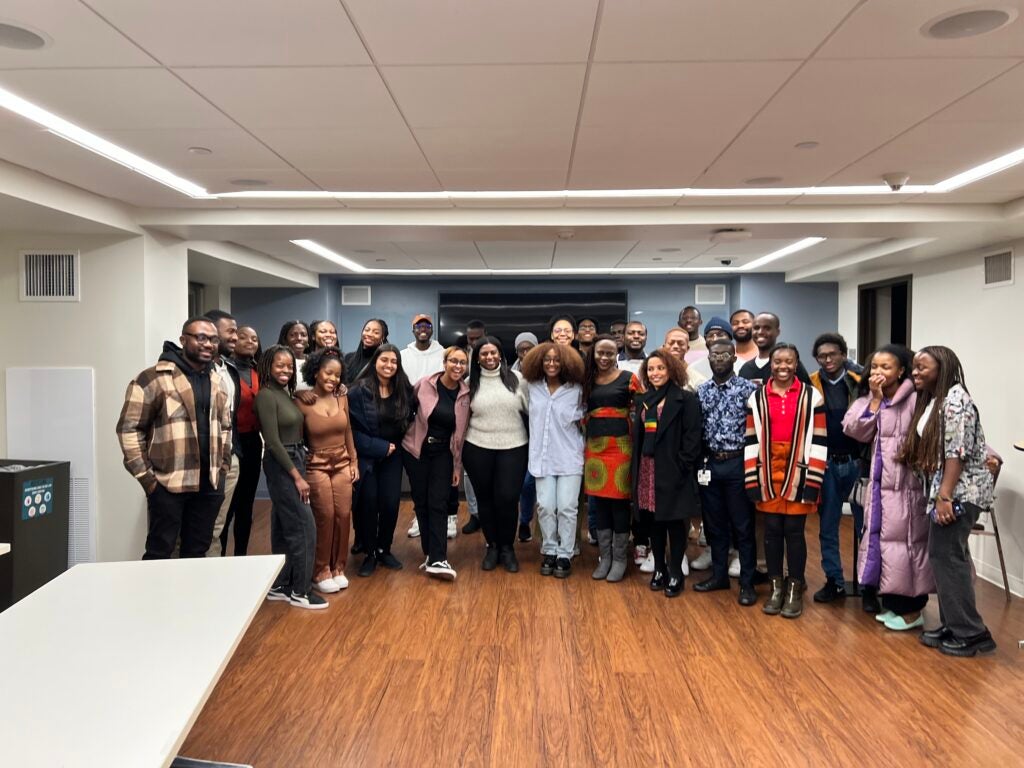
2023-2024 Africa Health Students Forum Executive Board & 2024 Africa Health Conference Co-chairs:
 |
Valencia Lambert is a native of Tanzania. She is currently a second-year Master of Science student in the Global Health and Population department with concentrations in infectious disease epidemiology and maternal and child health. She holds a BSc in Global and Public Health Sciences from Cornell University with minors in Human Development and Inequalities studies. Prior to enrolling into Harvard T.H.Chan School of Public Health, she worked for the Center for Global Health at Weill Cornell Medicine for two years. Throughout her position at Weill Cornell Medicine, she was based in Mwanza, Tanzania and worked primary on two mixed-methods projects focused on family planning and female genital schistosomiasis. She is passionate about women’s health; specifically examining how to improve health outcomes of women in low and middle income countries through innovative interventions that focus on health promotion. |
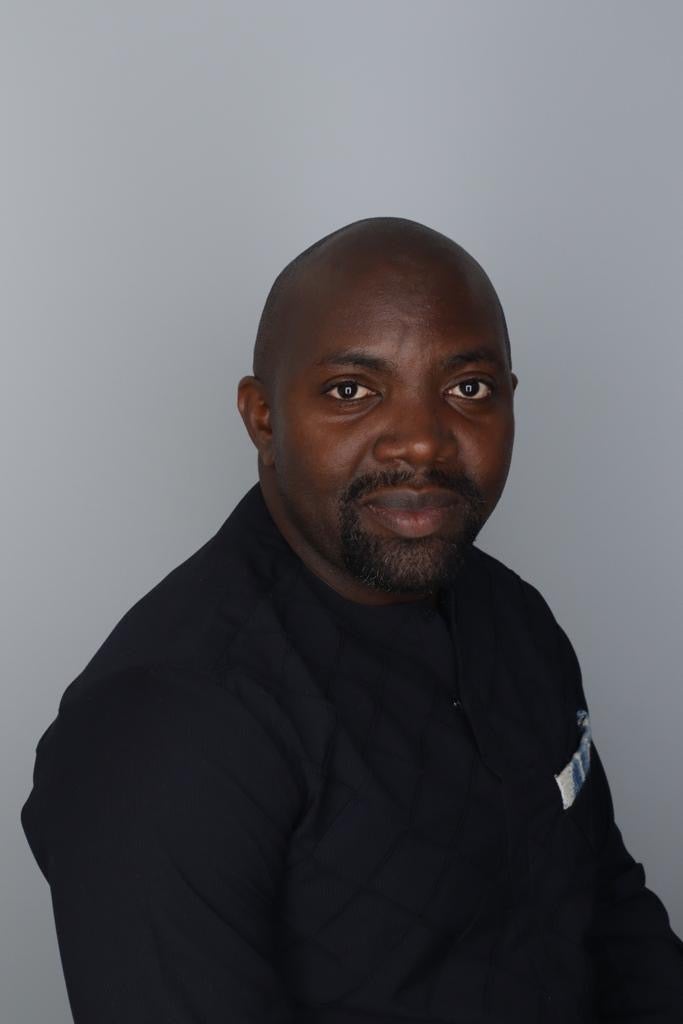 |
Teguo Djoyum is a dedicated Neurotechnologist and social entrepreneur committed to bridging healthcare gaps in Low- and Middle-Income Countries (LMICs). As the co-founder of the Global Organization of Health Education and Purple Point Neurodiagnostic, a “Fair-Profit” diagnostics company, Teguo has made neurodiagnostic services accessible in underserved regions. With a background as a clinical neurophysiologist at the University of Colorado for a decade, Teguo’s expertise lays the foundation for his transformative journey in healthcare. In 2018, he earned a Master’s in Public Health, igniting his passion for addressing health disparities and social determinants of health. Currently pursuing a Doctorate in Public Health, Teguo focuses on health equity and Neuro-spirituality.
Through Purple Point Neurodiagnostic, Teguo has successfully implemented neuroclinical services for mental health clinics and hospitals in Uganda, Ghana, Cameroon, Guatemala, Ethiopia, and the Democratic Republic of the Congo (DRC).
|
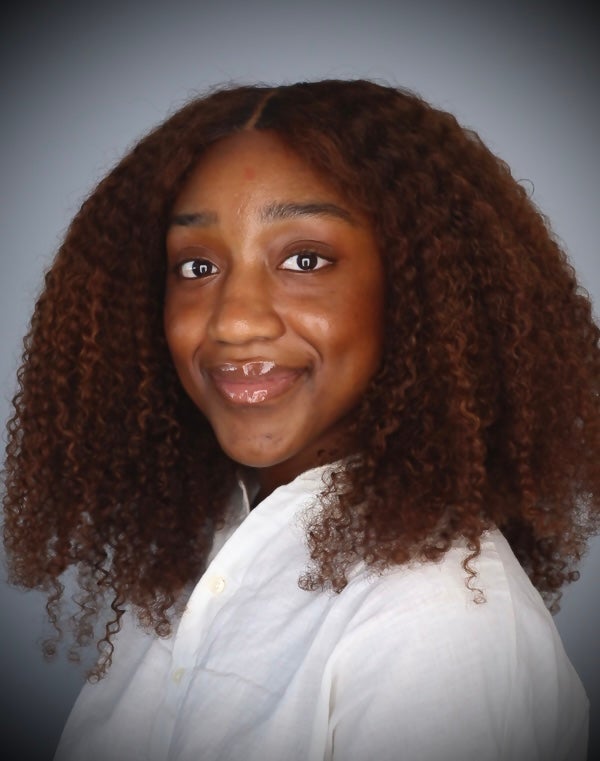 |
Sabrina Ebengho is a health policy Master of Public Health candidate at the Harvard T.H. Chan School of Public Health and from the Democratic Republic of Congo (DRC). Before joining Harvard, she earned her Bachelor of Arts in Public Health – Global Health from the University of Washington. Her professional expertise lies in community-based public health research and practices that intentionally center equity and marginalized communities. She has also spent time implementing, monitoring, and evaluating HIV programs. Sabrina’s areas of interest encompass social determinants of health, maternal and child health, HIV, and health systems strengthening. She is deeply passionate about addressing health system inequities in Sub-Saharan African countries, informing policies and interventions to improve access to quality social and health services, and promoting health equity and better outcomes. Sabrina hopes to pursue a PhD. |
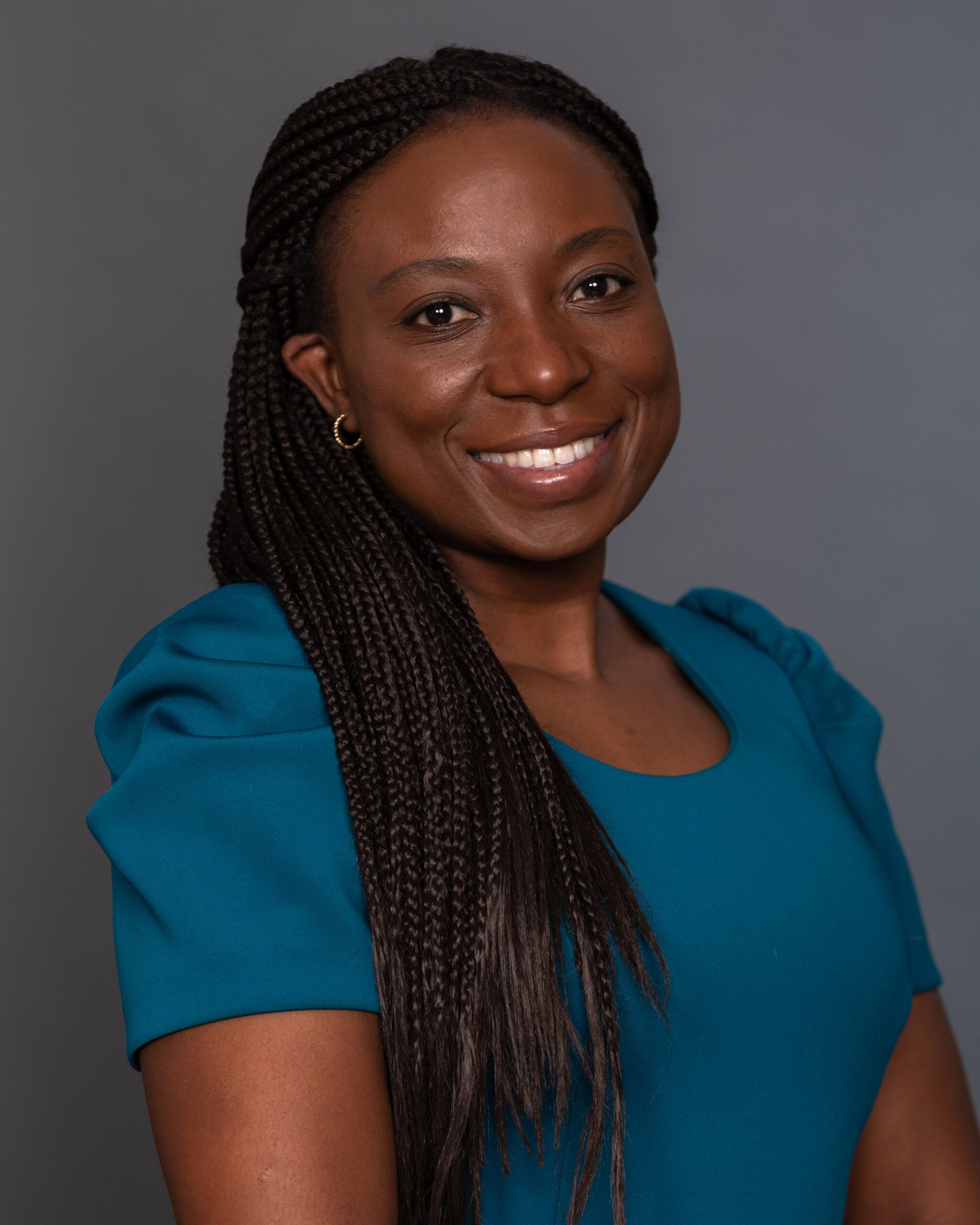 |
Tatenda Mujeni is a Doctor of Public Health candidate at Harvard. T.H Chan School of Public Health. She holds a Master of Public Health (MPH) degree from Columbia University and a BSc in Biology from Bennett College in Greensboro, North Carolina. Tatenda has over 10 years’ experience working in malaria prevention and control and health and community systems strengthening across Africa where she has worked in expanding community approaches for malaria prevention and control. Most recently, Tatenda’s passion for building sustainable and resilient health system has been focused on addressing gaps in health equity through innovative health financing strategies to protect populations in low-resourced settings from the financial risk associated with seeking healthcare. |
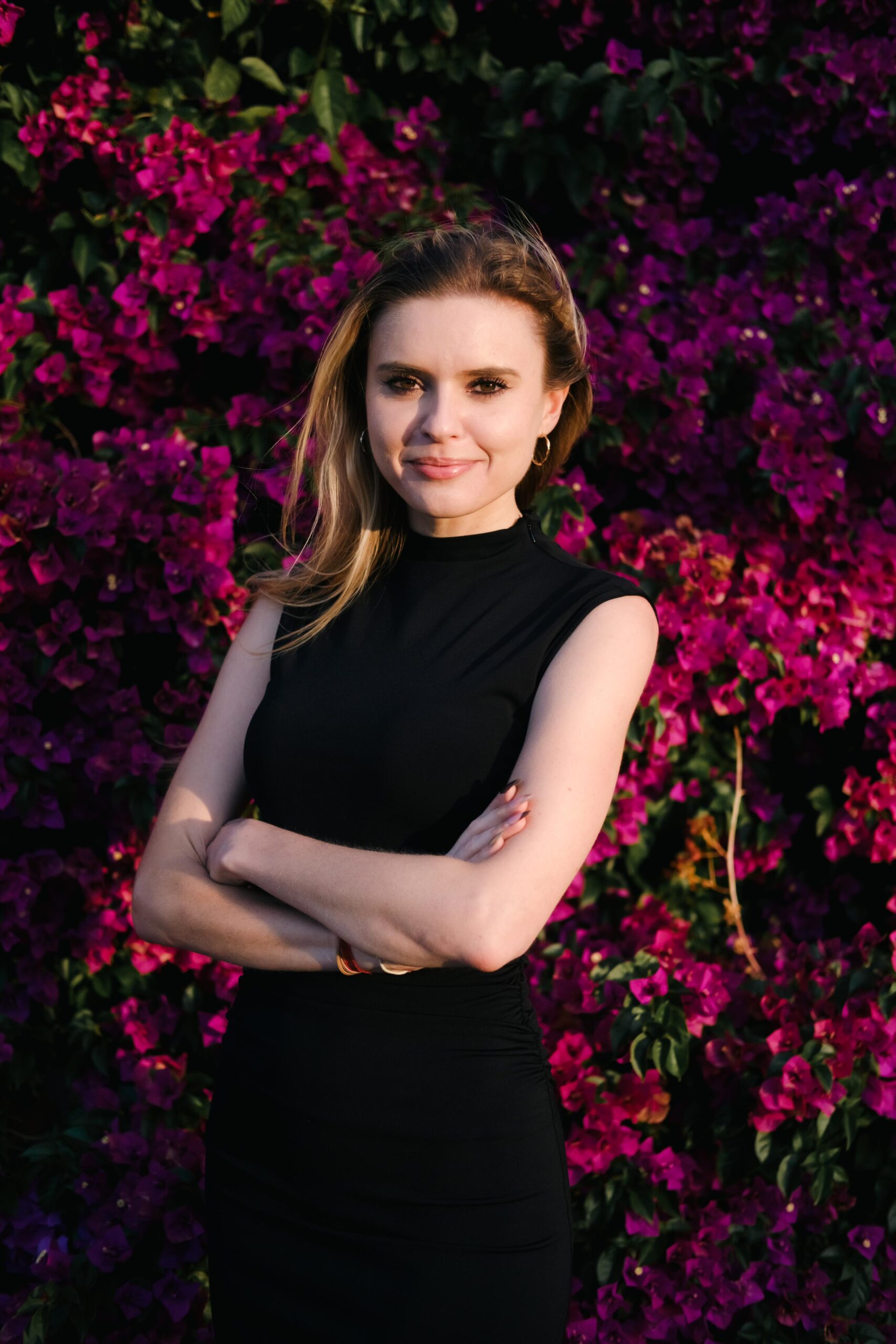 |
Anja Riester is a Master of Public Health student at Harvard T.H. Chan School of Public Health, specializing in Health Management. Prior to joining Harvard, she worked at Boston Consulting Group’s Johannesburg office, focusing on global health work in Africa. In this role, she has led projects with multilateral organizations, international funders, manufacturers and governments across the continent on a variety of topics such as vaccine delivery, HIV prevention, and health system strengthening. She is particularly interested in how the private and public sector can work together and leverage new innovations and technologies to create better outcomes for African citizens. Anja holds a Master in Management from HEC Paris and the University of the Witwatersrand and a B.Sc. in Business and Latin American Studies from Copenhagen Business School. She has lived on and off in South Africa for more than 13 years and considers Johannesburg her home. |
2024 Africa Health Conference Planning Committee Members:
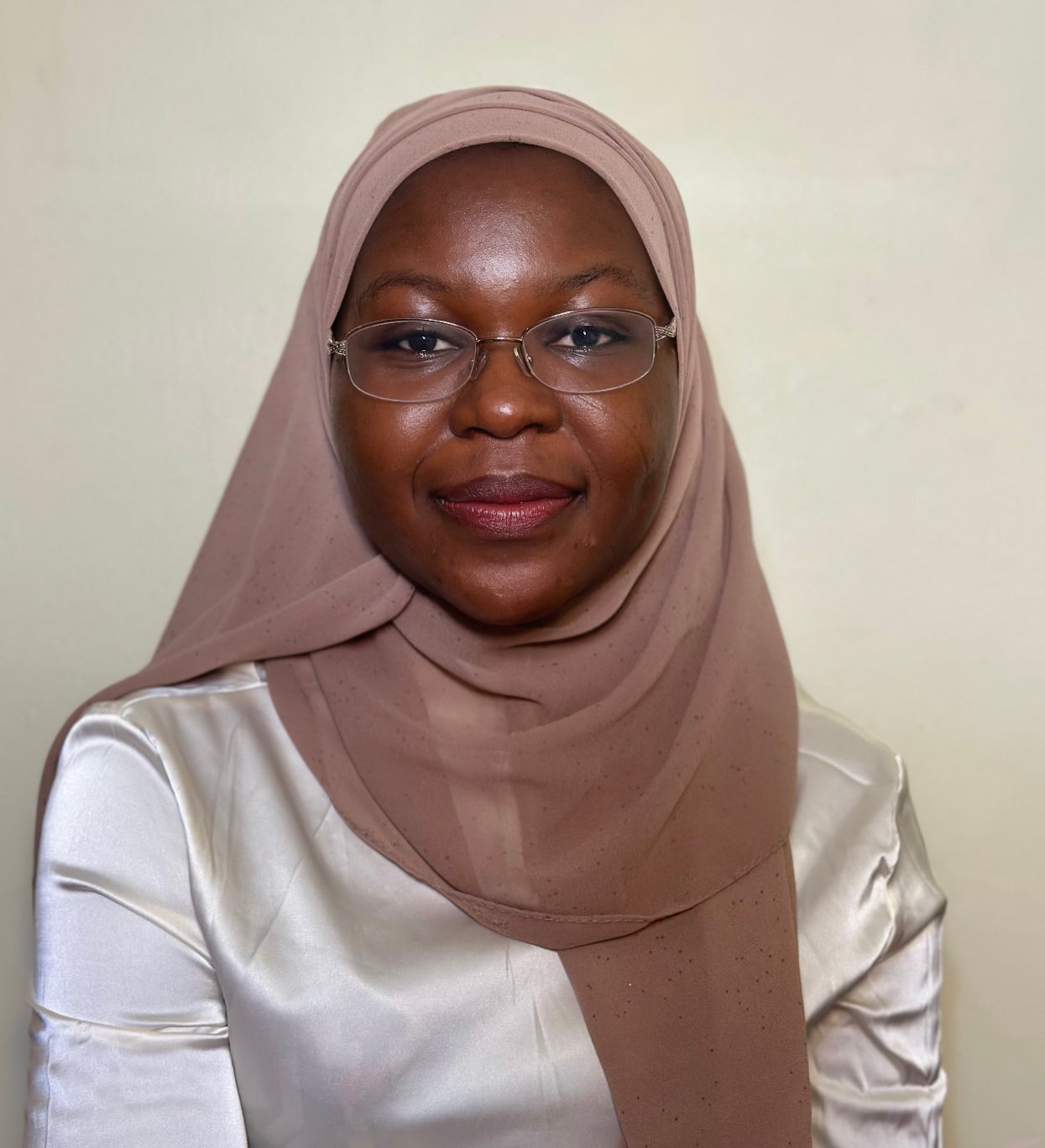 |
Hawa Haruna completed her undergraduate studies at the University of Notre Dame in 2023, earning a degree in Chemistry. During her time at Notre Dame, she conducted research in an analytical chemistry lab focused on detecting counterfeit pharmaceuticals in low and middle-income countries using cost-effective Paper Analytical Devices (PADs). For her future career goals, she aspires to investigate the religious, traditional, and cultural beliefs that shape the behavior of pregnant women towards pregnancy and childbirth in rural and poor urban areas of Northern Nigeria. Her aim is to identify incentives that might be sufficient to overcome reluctance to skilled birth delivery, building on the concepts present in Finland’s “baby boxes.” Pursuing a PhD will enable her to gain a deeper understanding of this issue. |
 |
Temiwunmi Akinmuleya is a master’s student in Global Health and Population at the Harvard Chan School of Public Health. Temi started her career as a clinical pharmacist on the frontlines, later transitioning to roles in regulatory and medical affairs, where she contributed to efforts to broaden access to medicines in Africa. Before embarking on her graduate education, she lived and worked in Nigeria, balancing roles in the private sector with volunteer work at a nonprofit focused on enhancing population health outcomes in Africa. Presently, as a research assistant at the Harvard School of Public Health, Temi actively contributes to the generation of evidence for the Lancet Commission on the Future of Health and Economic Resilience in Africa, informing health policy reform on the continent. Her research focuses on infectious disease epidemiology, at the intersection of maternal and child health. Going forward, Temi aspires to use her work and research to spotlight interventions that improve population health by tackling key issues like transmission of vaccine preventable infections in vulnerable populations. |
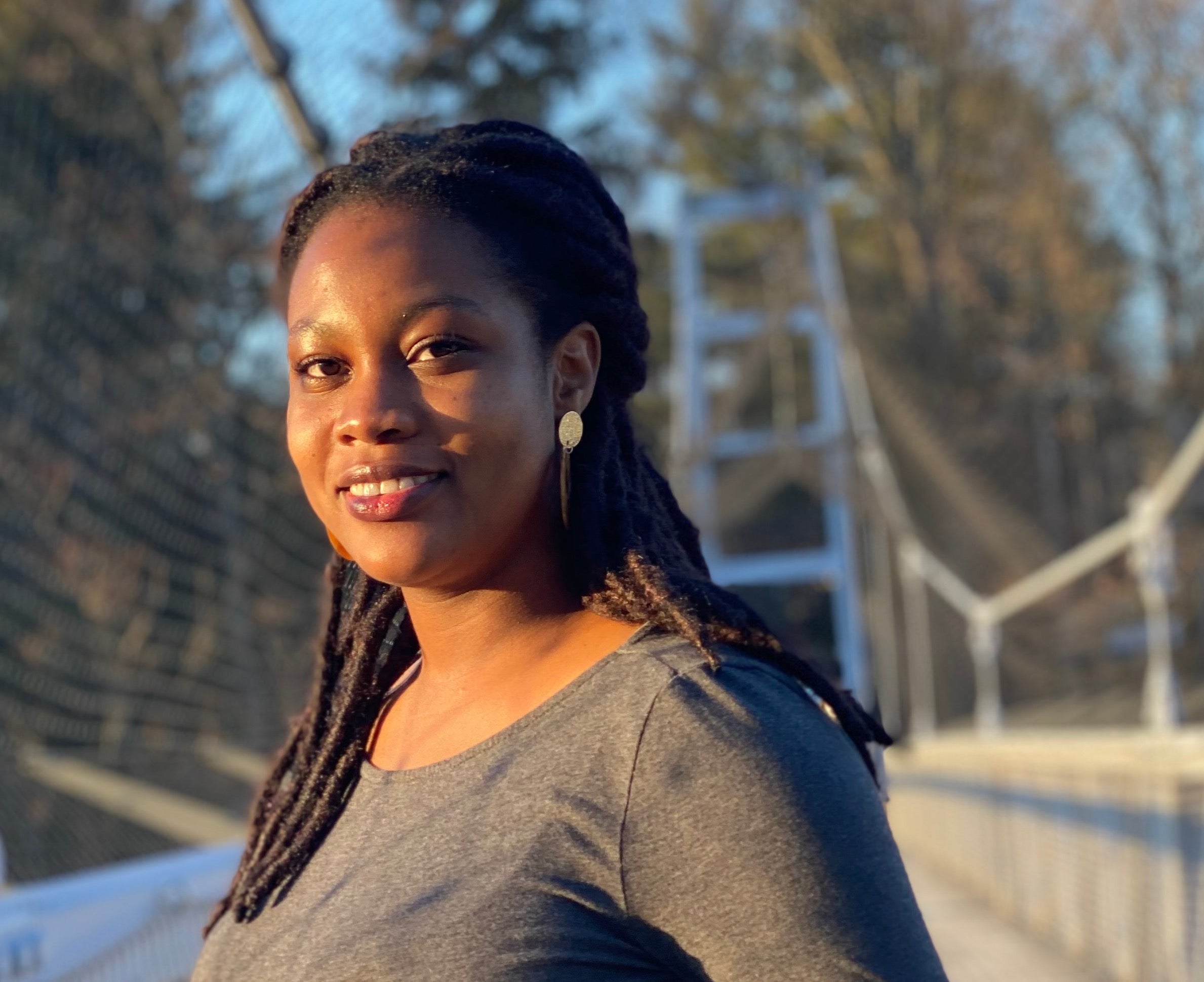 |
Catherine Wambura is a native of Tanzania. She is a first-year Master of Science student in Global Health and Population. Her interests lie at the intersection of reproductive health and infectious diseases, specifically examining how to improve access to quality reproductive healthcare services for young girls and women in sub-Saharan Africa. |
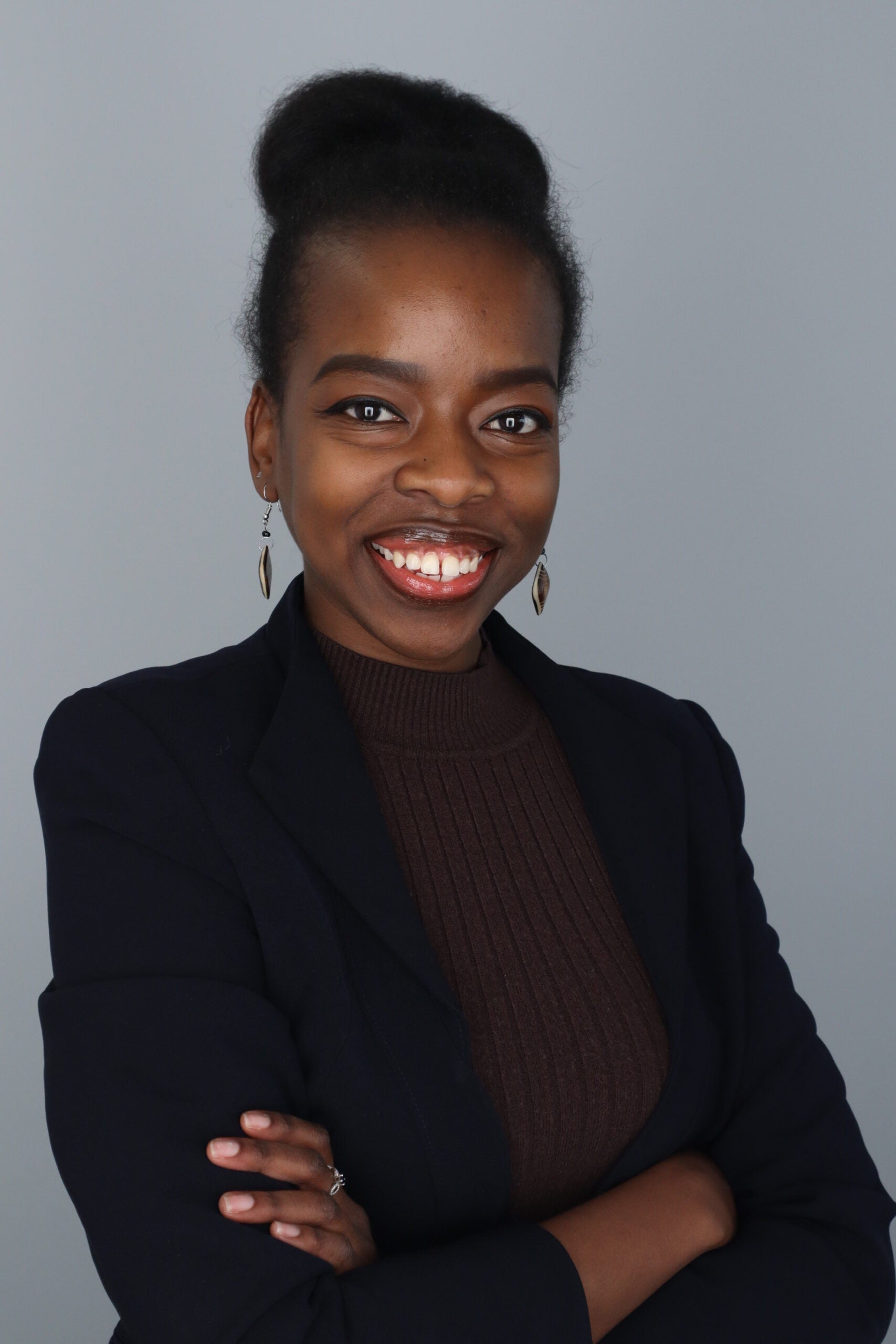 |
Neema Lema is currently pursuing an MPH-65 degree in Health Policy, with a focus on health equity research in marginalized populations. She holds a Bachelor’s degree in Economics, which has provided her with a foundation and understanding of the economic dimensions within the healthcare landscape. Prior to her graduate studies, she was a senior analyst at the consulting firm Analysis Group, Inc., specializing in health and economic outcomes research. This professional experience has equipped her with analytical skills that now inform her academic pursuits as she seeks innovative solutions to address health disparities and promote equity in the field of public health. |
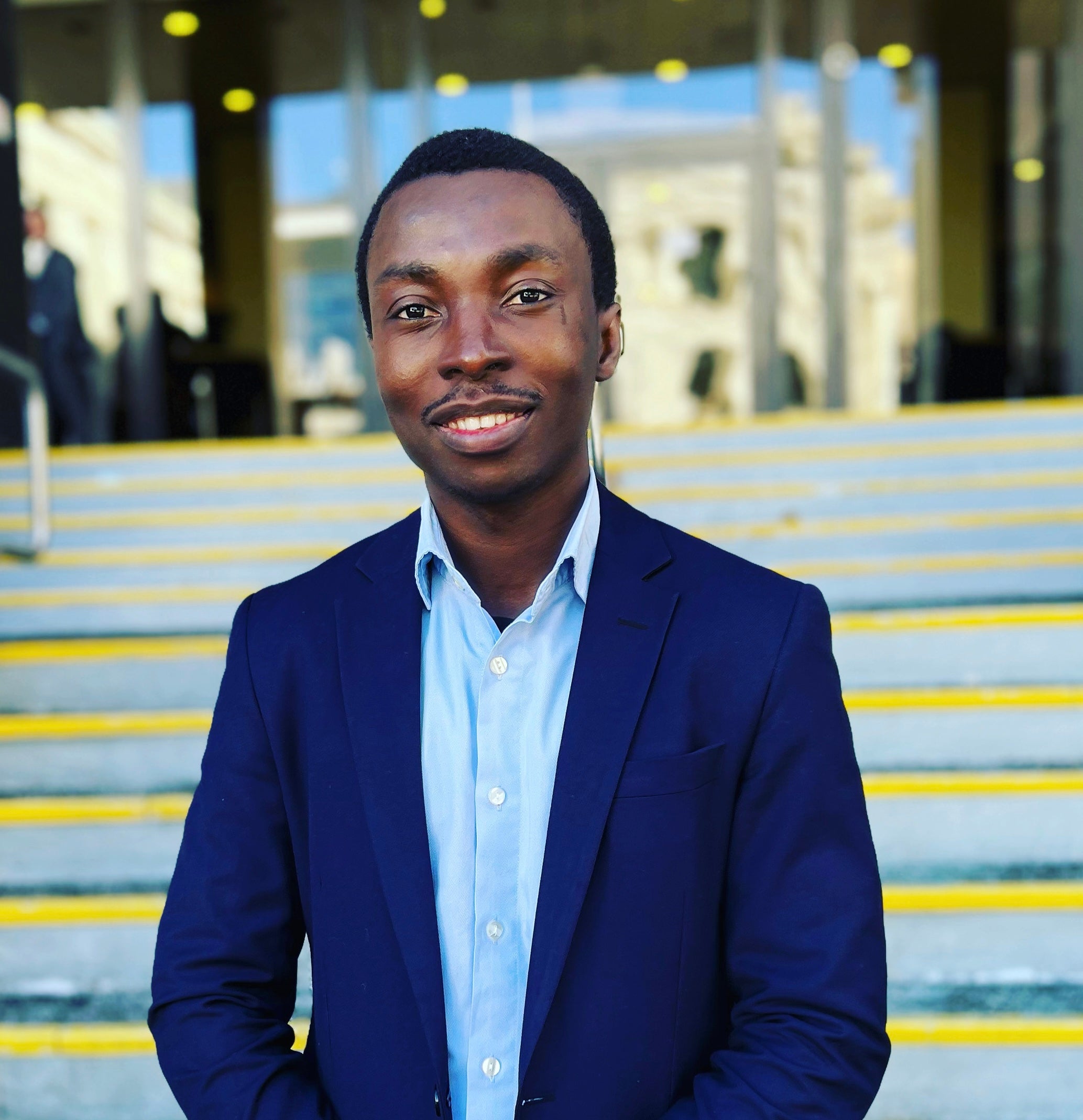 |
Matthew Dwumah-Agyen is a Physician from Ghana, currently an Internal Medicine resident and an alumnus of the Harvard T.H.Chan School of Public Health with MPH in Global Health, 2023. He is interested in health disparities and equity, nutritional research, pulmonary and critical care medicine which are often limited in Low-and-middle-income countries and low resource communities. |
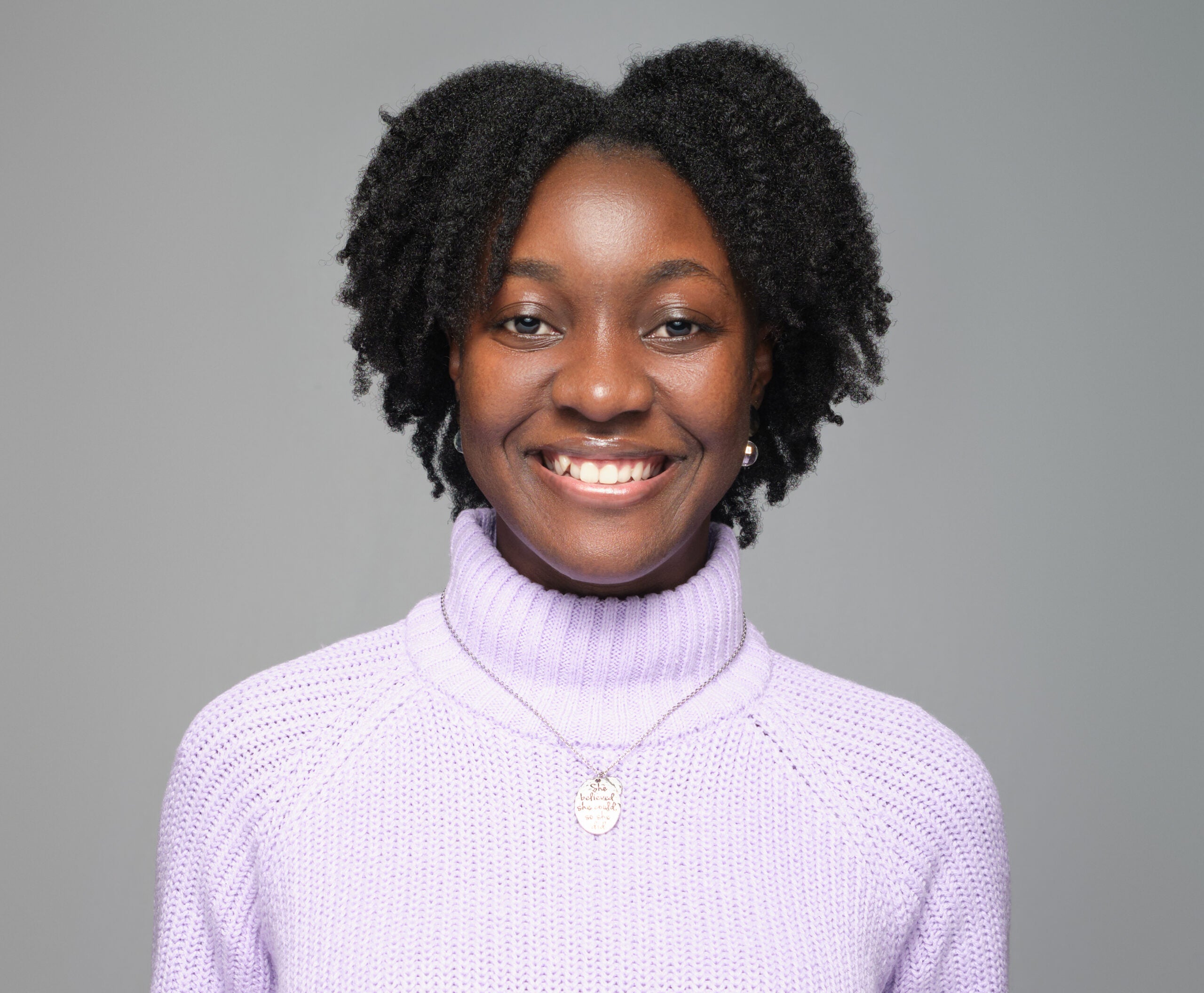 |
Idongesit Sampson is an MPH student with a background in health consulting, designing, and implementing innovative solutions and policies to address public health challenges across Africa. She is now currently exploring opportunities for optimizing health and environmental outcomes at the intersection of public health and climate change. |
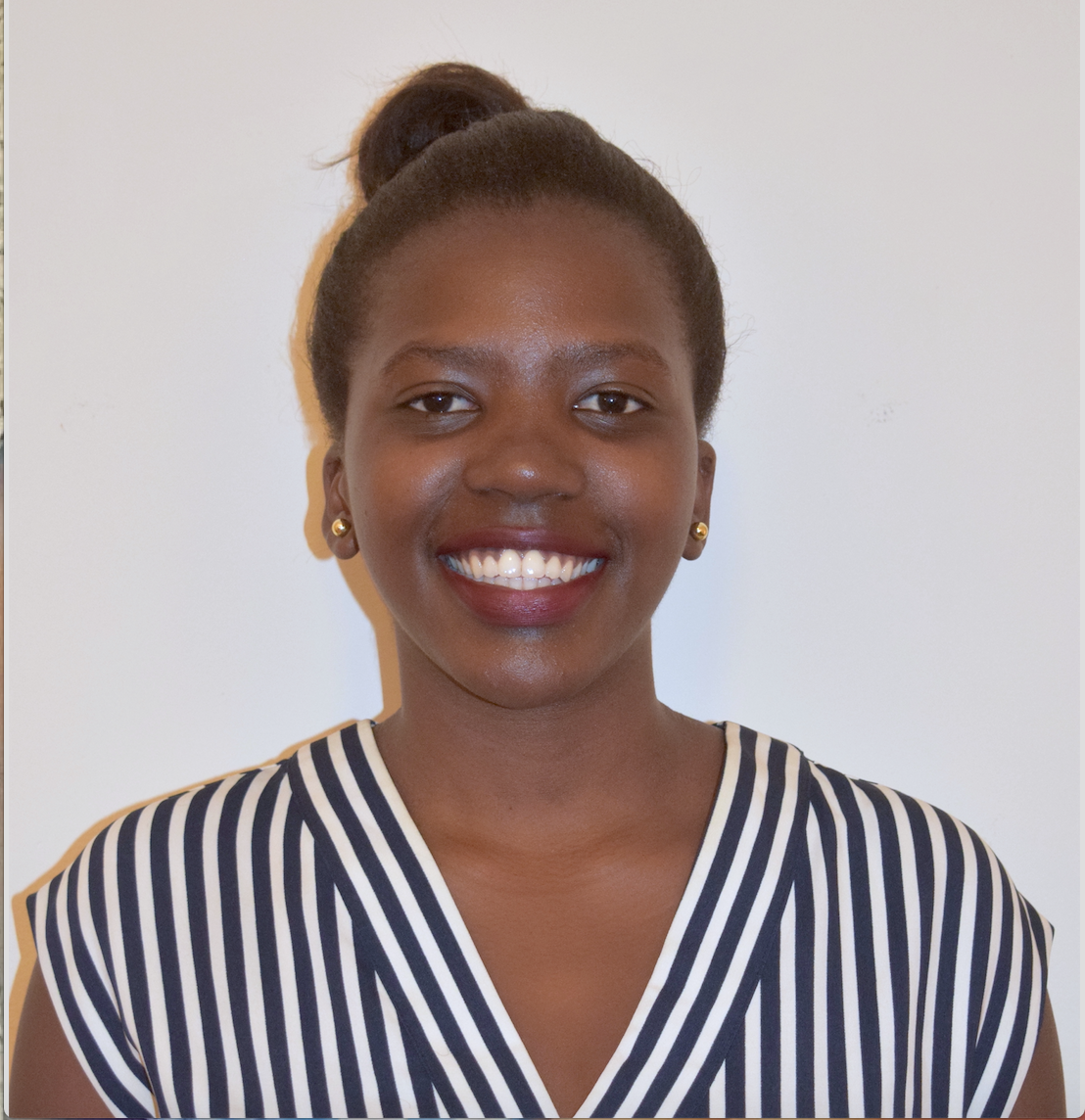 |
Lisa Matay is a native of Tanzania and a current SM2 Candidate in the Global Health and Population program. She completed her undergraduate studies at Harvard College in 2020 with a degree in economics. Prior to starting at HSPH, she worked as a senior analyst at Analysis group in Boston and San Francisco. While at analysis group, she worked on health economics research and outcomes, using big data to analyze healthcare costs, resource utilization, racial disparities and treatment burden for various chronic diseases in the US. Her interests lie at the intersection of health and economics to improve infectious disease and maternal and child health outcomes in sub-Saharan Africa. She is passionate about using big data and decision analytics tools to inform evidence-based policies, address health system inequities and improve population health in sub-saharan Africa. |
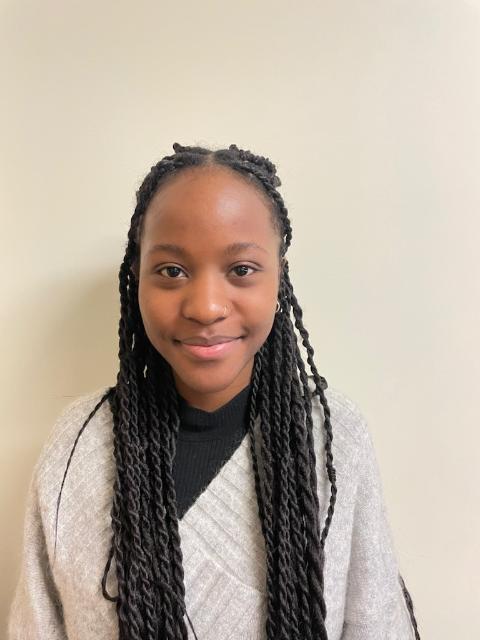
|
Shalom Sabwa holds a Master’s degree in Public Health with a focus on Epidemiology. Currently, she serves as a Research Analyst in Global Health System Quality Research at the QuEST Network, based at the Harvard T.H. Chan School of Public Health. |
 |
Hailu Dhufera is a Medical Doctor from Ethiopia, perusing a Doctor of Public Health (DrPH) at Harvard T H Chan, school of public health. Hailu is passionate about health financing in low-middle-income countries with an interest in grass-root innovative insurance such as Community-Based Health Insurance (CBHI) and the role of digitization in advancing them.
|
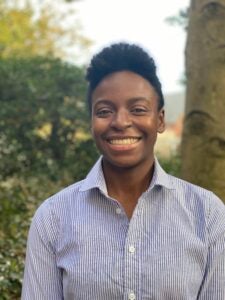 Jioni Tuck is a first year Master of Science student in Global Health and Population at the Harvard Chan School of Public Health. Prior to starting graduate school, she worked in Guatemala for 3 years leading the monitoring and evaluation team at a local agriculture and nutrition-focused NGO. In the past year, Jioni managed a spatial epidemiology research team at the College of William & Mary before working as a Legislative Fellow at the U.S. House of Representatives. Jioni holds a BA in Government and Public Health from the College of William & Mary. She is interested in health systems, women’s reproductive health, and international development. She plans to work for USAID as a Foreign Service Officer upon graduating.
Jioni Tuck is a first year Master of Science student in Global Health and Population at the Harvard Chan School of Public Health. Prior to starting graduate school, she worked in Guatemala for 3 years leading the monitoring and evaluation team at a local agriculture and nutrition-focused NGO. In the past year, Jioni managed a spatial epidemiology research team at the College of William & Mary before working as a Legislative Fellow at the U.S. House of Representatives. Jioni holds a BA in Government and Public Health from the College of William & Mary. She is interested in health systems, women’s reproductive health, and international development. She plans to work for USAID as a Foreign Service Officer upon graduating.
 Mike Tuffour Amirikah Jr brings a blend of medical expertise and a passion for global health to the forefront. As a dedicated physician, humanitarian and currently a Global Health and Population MPH program at Harvard T.H. Chan School of Public Health, he is committed to leveraging communication strategies to drive positive change in healthcare, particularly in LMICs. His experience in clinical medicine, combined with ongoing academic pursuits, fuels his dedication to fostering dialogue, innovation, and actionable solutions within the African health ecosystem. He is eager to contribute his diverse skill set to the communication team for the Harvard Africa Health Conference, striving to amplify impactful narratives and drive meaningful engagement.
Mike Tuffour Amirikah Jr brings a blend of medical expertise and a passion for global health to the forefront. As a dedicated physician, humanitarian and currently a Global Health and Population MPH program at Harvard T.H. Chan School of Public Health, he is committed to leveraging communication strategies to drive positive change in healthcare, particularly in LMICs. His experience in clinical medicine, combined with ongoing academic pursuits, fuels his dedication to fostering dialogue, innovation, and actionable solutions within the African health ecosystem. He is eager to contribute his diverse skill set to the communication team for the Harvard Africa Health Conference, striving to amplify impactful narratives and drive meaningful engagement.
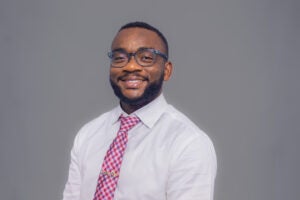 Dennis Delasi Nyanyo is an aspiring neurologist from Accra, Ghana. He is a final year dual MD/MPP candidate at the Harvard Kennedy School of Government and Harvard Medical School. Having recently completed an internship with the WHO Innovation Hub in Switzerland, Dennis is interested in how policy can be used to accelerate more equitable and affordable access to evidence-based treatments in the low and middle income countries. Prior to HMS, he obtained his bachelor’s degree in Biological Sciences from Cornell University. While at Cornell, he co-founded, Apomden, a healthcare technology company aimed at improving bed management in Ghanaian hospitals to improve patient outcomes in emergency situations.
Dennis Delasi Nyanyo is an aspiring neurologist from Accra, Ghana. He is a final year dual MD/MPP candidate at the Harvard Kennedy School of Government and Harvard Medical School. Having recently completed an internship with the WHO Innovation Hub in Switzerland, Dennis is interested in how policy can be used to accelerate more equitable and affordable access to evidence-based treatments in the low and middle income countries. Prior to HMS, he obtained his bachelor’s degree in Biological Sciences from Cornell University. While at Cornell, he co-founded, Apomden, a healthcare technology company aimed at improving bed management in Ghanaian hospitals to improve patient outcomes in emergency situations.
 Rebecca Mak is a Master’s of Science candidate in the Harvard T.H. Chan Global Health and Population Department. She received her B.A. in Social Policy Analysis and French Studies at Rice University in Houston, Texas, but was born in Toronto, Canada and raised in the Bay Area, California. Her research interests and experiences lie in social determinants of health, health policy evaluation, and health systems strengthening with a focus on marginalized groups in countries of all income levels. After graduating, she plans to attend medical school.
Rebecca Mak is a Master’s of Science candidate in the Harvard T.H. Chan Global Health and Population Department. She received her B.A. in Social Policy Analysis and French Studies at Rice University in Houston, Texas, but was born in Toronto, Canada and raised in the Bay Area, California. Her research interests and experiences lie in social determinants of health, health policy evaluation, and health systems strengthening with a focus on marginalized groups in countries of all income levels. After graduating, she plans to attend medical school.
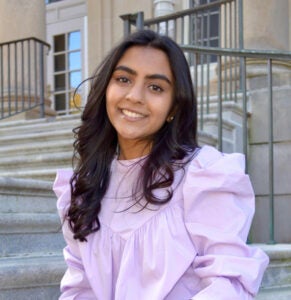 Kynza Khimani is a second-year M.S. student in the Department of Global Health & Population concentrating in Infectious Disease Epidemiology. My interests include infectious disease and vaccine equity among marginalized populations, specifically refugees and asylum seekers. I am excited to participate in the Africa Health Conference this year and learn more about implementation from all the inspiring panelists.
Kynza Khimani is a second-year M.S. student in the Department of Global Health & Population concentrating in Infectious Disease Epidemiology. My interests include infectious disease and vaccine equity among marginalized populations, specifically refugees and asylum seekers. I am excited to participate in the Africa Health Conference this year and learn more about implementation from all the inspiring panelists.
 Sirad Hassan is a first-year PhD student at Harvard Chan School of Public Health and Griffin Graduate School of Arts and Sciences, specializing in maternal health, mental health, and nutrition within refugee and migrant populations. Before her doctoral pursuit, she earned her M.S. in Human Nutrition from Columbia University and her A.B. in Public and International Affairs from Princeton University, with minors in African American Studies, African Studies, Cognitive Science, and Global Health and Health Policy.
Sirad Hassan is a first-year PhD student at Harvard Chan School of Public Health and Griffin Graduate School of Arts and Sciences, specializing in maternal health, mental health, and nutrition within refugee and migrant populations. Before her doctoral pursuit, she earned her M.S. in Human Nutrition from Columbia University and her A.B. in Public and International Affairs from Princeton University, with minors in African American Studies, African Studies, Cognitive Science, and Global Health and Health Policy.
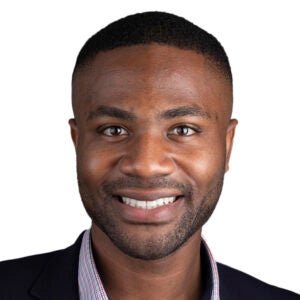 Papa Anderson is an MD Candidate at Harvard Medical School, MA. He is an experienced researcher with a strong background in Biomedical Research and graduated from Williams College, MA with a BA in Chemistry (Honors). He has over 5 years of experience in biomedical research with his work resulting in two co-first author publications in high-impact scientific journals and presentations at several conferences. For the last two years, Papa was exploring his interest in developing novel therapies for strokes through his role as a cardiovascular research assistant at the Beth Israel Deaconess Medical Center, MA, USA. Aside from his research work, Papa serves as the president and co-founder of the Ghana Youth Movement for Mental Health (GYMMH), an NGO established to increase access to mental health education among Ghanaian youth. He has also worked with other NGOs including the Barka Foundation, a 501(c)3 non-profit organization based in the USA and Burkina Faso. Papa was working with the group as their Ghanaian consultant to help pilot their sustainable menstrual cup distribution project to low-income areas in Ghana. Papa’s extensive work with grassroots and pilot programs has honed his management and leadership skills. He is interested in how medicine, medical research and education can advance healthcare in developing countries.
Papa Anderson is an MD Candidate at Harvard Medical School, MA. He is an experienced researcher with a strong background in Biomedical Research and graduated from Williams College, MA with a BA in Chemistry (Honors). He has over 5 years of experience in biomedical research with his work resulting in two co-first author publications in high-impact scientific journals and presentations at several conferences. For the last two years, Papa was exploring his interest in developing novel therapies for strokes through his role as a cardiovascular research assistant at the Beth Israel Deaconess Medical Center, MA, USA. Aside from his research work, Papa serves as the president and co-founder of the Ghana Youth Movement for Mental Health (GYMMH), an NGO established to increase access to mental health education among Ghanaian youth. He has also worked with other NGOs including the Barka Foundation, a 501(c)3 non-profit organization based in the USA and Burkina Faso. Papa was working with the group as their Ghanaian consultant to help pilot their sustainable menstrual cup distribution project to low-income areas in Ghana. Papa’s extensive work with grassroots and pilot programs has honed his management and leadership skills. He is interested in how medicine, medical research and education can advance healthcare in developing countries.
 Jioni Tuck is a first year Master of Science student in Global Health and Population at the Harvard Chan School of Public Health. Prior to starting graduate school, she worked in Guatemala for 3 years leading the monitoring and evaluation team at a local agriculture and nutrition-focused NGO. In the past year, Jioni managed a spatial epidemiology research team at the College of William & Mary before working as a Legislative Fellow at the U.S. House of Representatives. Jioni holds a BA in Government and Public Health from the College of William & Mary. She is interested in health systems, women’s reproductive health, and international development. She plans to work for USAID as a Foreign Service Officer upon graduating.
Jioni Tuck is a first year Master of Science student in Global Health and Population at the Harvard Chan School of Public Health. Prior to starting graduate school, she worked in Guatemala for 3 years leading the monitoring and evaluation team at a local agriculture and nutrition-focused NGO. In the past year, Jioni managed a spatial epidemiology research team at the College of William & Mary before working as a Legislative Fellow at the U.S. House of Representatives. Jioni holds a BA in Government and Public Health from the College of William & Mary. She is interested in health systems, women’s reproductive health, and international development. She plans to work for USAID as a Foreign Service Officer upon graduating. Mike Tuffour Amirikah Jr brings a blend of medical expertise and a passion for global health to the forefront. As a dedicated physician, humanitarian and currently a Global Health and Population MPH program at Harvard T.H. Chan School of Public Health, he is committed to leveraging communication strategies to drive positive change in healthcare, particularly in LMICs. His experience in clinical medicine, combined with ongoing academic pursuits, fuels his dedication to fostering dialogue, innovation, and actionable solutions within the African health ecosystem. He is eager to contribute his diverse skill set to the communication team for the Harvard Africa Health Conference, striving to amplify impactful narratives and drive meaningful engagement.
Mike Tuffour Amirikah Jr brings a blend of medical expertise and a passion for global health to the forefront. As a dedicated physician, humanitarian and currently a Global Health and Population MPH program at Harvard T.H. Chan School of Public Health, he is committed to leveraging communication strategies to drive positive change in healthcare, particularly in LMICs. His experience in clinical medicine, combined with ongoing academic pursuits, fuels his dedication to fostering dialogue, innovation, and actionable solutions within the African health ecosystem. He is eager to contribute his diverse skill set to the communication team for the Harvard Africa Health Conference, striving to amplify impactful narratives and drive meaningful engagement. Dennis Delasi Nyanyo is an aspiring neurologist from Accra, Ghana. He is a final year dual MD/MPP candidate at the Harvard Kennedy School of Government and Harvard Medical School. Having recently completed an internship with the WHO Innovation Hub in Switzerland, Dennis is interested in how policy can be used to accelerate more equitable and affordable access to evidence-based treatments in the low and middle income countries. Prior to HMS, he obtained his bachelor’s degree in Biological Sciences from Cornell University. While at Cornell, he co-founded, Apomden, a healthcare technology company aimed at improving bed management in Ghanaian hospitals to improve patient outcomes in emergency situations.
Dennis Delasi Nyanyo is an aspiring neurologist from Accra, Ghana. He is a final year dual MD/MPP candidate at the Harvard Kennedy School of Government and Harvard Medical School. Having recently completed an internship with the WHO Innovation Hub in Switzerland, Dennis is interested in how policy can be used to accelerate more equitable and affordable access to evidence-based treatments in the low and middle income countries. Prior to HMS, he obtained his bachelor’s degree in Biological Sciences from Cornell University. While at Cornell, he co-founded, Apomden, a healthcare technology company aimed at improving bed management in Ghanaian hospitals to improve patient outcomes in emergency situations. Rebecca Mak is a Master’s of Science candidate in the Harvard T.H. Chan Global Health and Population Department. She received her B.A. in Social Policy Analysis and French Studies at Rice University in Houston, Texas, but was born in Toronto, Canada and raised in the Bay Area, California. Her research interests and experiences lie in social determinants of health, health policy evaluation, and health systems strengthening with a focus on marginalized groups in countries of all income levels. After graduating, she plans to attend medical school.
Rebecca Mak is a Master’s of Science candidate in the Harvard T.H. Chan Global Health and Population Department. She received her B.A. in Social Policy Analysis and French Studies at Rice University in Houston, Texas, but was born in Toronto, Canada and raised in the Bay Area, California. Her research interests and experiences lie in social determinants of health, health policy evaluation, and health systems strengthening with a focus on marginalized groups in countries of all income levels. After graduating, she plans to attend medical school. Kynza Khimani is a second-year M.S. student in the Department of Global Health & Population concentrating in Infectious Disease Epidemiology. My interests include infectious disease and vaccine equity among marginalized populations, specifically refugees and asylum seekers. I am excited to participate in the Africa Health Conference this year and learn more about implementation from all the inspiring panelists.
Kynza Khimani is a second-year M.S. student in the Department of Global Health & Population concentrating in Infectious Disease Epidemiology. My interests include infectious disease and vaccine equity among marginalized populations, specifically refugees and asylum seekers. I am excited to participate in the Africa Health Conference this year and learn more about implementation from all the inspiring panelists. Sirad Hassan is a first-year PhD student at Harvard Chan School of Public Health and Griffin Graduate School of Arts and Sciences, specializing in maternal health, mental health, and nutrition within refugee and migrant populations. Before her doctoral pursuit, she earned her M.S. in Human Nutrition from Columbia University and her A.B. in Public and International Affairs from Princeton University, with minors in African American Studies, African Studies, Cognitive Science, and Global Health and Health Policy.
Sirad Hassan is a first-year PhD student at Harvard Chan School of Public Health and Griffin Graduate School of Arts and Sciences, specializing in maternal health, mental health, and nutrition within refugee and migrant populations. Before her doctoral pursuit, she earned her M.S. in Human Nutrition from Columbia University and her A.B. in Public and International Affairs from Princeton University, with minors in African American Studies, African Studies, Cognitive Science, and Global Health and Health Policy. Papa Anderson is an MD Candidate at Harvard Medical School, MA. He is an experienced researcher with a strong background in Biomedical Research and graduated from Williams College, MA with a BA in Chemistry (Honors). He has over 5 years of experience in biomedical research with his work resulting in two co-first author publications in high-impact scientific journals and presentations at several conferences. For the last two years, Papa was exploring his interest in developing novel therapies for strokes through his role as a cardiovascular research assistant at the Beth Israel Deaconess Medical Center, MA, USA. Aside from his research work, Papa serves as the president and co-founder of the Ghana Youth Movement for Mental Health (GYMMH), an NGO established to increase access to mental health education among Ghanaian youth. He has also worked with other NGOs including the Barka Foundation, a 501(c)3 non-profit organization based in the USA and Burkina Faso. Papa was working with the group as their Ghanaian consultant to help pilot their sustainable menstrual cup distribution project to low-income areas in Ghana. Papa’s extensive work with grassroots and pilot programs has honed his management and leadership skills. He is interested in how medicine, medical research and education can advance healthcare in developing countries.
Papa Anderson is an MD Candidate at Harvard Medical School, MA. He is an experienced researcher with a strong background in Biomedical Research and graduated from Williams College, MA with a BA in Chemistry (Honors). He has over 5 years of experience in biomedical research with his work resulting in two co-first author publications in high-impact scientific journals and presentations at several conferences. For the last two years, Papa was exploring his interest in developing novel therapies for strokes through his role as a cardiovascular research assistant at the Beth Israel Deaconess Medical Center, MA, USA. Aside from his research work, Papa serves as the president and co-founder of the Ghana Youth Movement for Mental Health (GYMMH), an NGO established to increase access to mental health education among Ghanaian youth. He has also worked with other NGOs including the Barka Foundation, a 501(c)3 non-profit organization based in the USA and Burkina Faso. Papa was working with the group as their Ghanaian consultant to help pilot their sustainable menstrual cup distribution project to low-income areas in Ghana. Papa’s extensive work with grassroots and pilot programs has honed his management and leadership skills. He is interested in how medicine, medical research and education can advance healthcare in developing countries.













